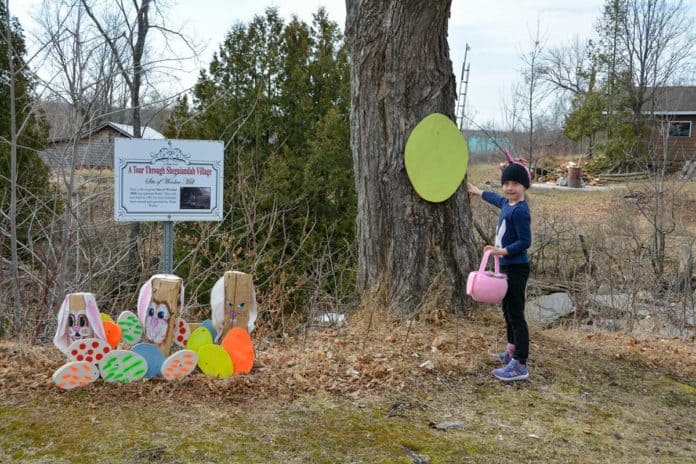SUDBURY – At a special meeting March 30, Rainbow District School Board (RDSB) trustees voted unanimously to “write a letter expressing its grave concerns about the provincial government’s proposed plan for online and remote learning,” in response to a Globe and Mail report on a leaked internal document that stated Ontario plans to make virtual learning a permanent part of the education system, a controversial subject that was a major issue in the 2019-2020 labour disputes through the entire public education system.
RDSB called a special meeting last week to allow some education partners to share their thoughts on the reported proposals. Board executives noted that the province has yet to officially tell school boards about this plan; the only reason the board knew about it was because of news reports on leaked documents.
Ontario is reportedly exploring the idea of making school boards permanently offer synchronous (real-time) remote learning for families who opt-in, and requiring such live, virtual classes during emergencies or snow days.
The legislation will allow TVO and TFO (its French equivalent) to develop and manage the online courses, not individual boards. Those organizations could require school boards to pay a per-student fee to access the courses. The province is also looking to allow TVO/TFO to become a revenue generator, through marketing their virtual learning and related supports to other provinces and internationally.
More than 130 people were watching the board meeting live at its peak viewer count.
Union leaders share
concerns
The meeting began with delegations from Ontario Secondary School Teachers’ Federation (OSSTF) District Three president Eric Laberge and Elementary Teachers’ Federation of Ontario (ETFO) Rainbow Teacher Local president Liana Holm.
“The in-person classroom cannot be replicated online. We are suspicious of the government’s plan to create a standalone infrastructure for e-learning that could ultimately be sold off to the highest bidder, thereby privatizing a chunk of Ontario’s publicly funded education system,” said Mr. Laberge.
He said the province has talked about generating educational revenue in the past, which he said made Ontario’s motives suspicious.
Ms. Holm suggested there may be ulterior, profit-driven motives for the Ford government in this case, rather than prioritizing student needs.
“Since it was elected, the Ford Government has made it clear that it has an agenda to dismantle our world-renowned public education system. It is attempting to weaken public education by capitalizing on a global pandemic to redirect funding dollars, erode public confidence and present a remote learning model as an innovative opportunity for students,” said Ms. Holm.
She cited the benefits beyond the classroom as key reasons why in-school learning should remain the priority. These include supporting educational, developmental and social needs of children, stability and consistency, standardized learning in all parts of the province, food supports, school supplies, clubs and sports teams, field trips, and building relationships between fellow students and their teachers.
Others offered concerns that teachers can often spot signs of children facing abuse at home, signs that are often not visible through virtual classrooms and can potentially put students in danger.
RDSB executives dislike proposal
“To date, RDSB has not received any notice or requests to share input on the creation of the document. The document, if it becomes policy, will certainly present a host of challenges (and possible opportunities),” said Norm Blaseg, RDSB director of education, noting that some of the reported changes would take effect as soon as September 2021.
Boards are already planning staffing for next school year and any changes would disrupt the nine union agreements RDSB has with its workforce.
He added that surveys about mid-pandemic online learning success rates might not be translatable to normal times, because the emergency model would be different than a permanent offering.
School boards are expected to continue offering student wellness programs, technology support and other services remotely in addition to in person, with no extra funding.
He acknowledged that some students can thrive on virtual learning but this is a minority. Superintendents Bruce Bourget, Judy Noble and Kathy Wachnuk then offered comments that outlined their concerns, as well as a variety of potential advantages and disadvantages to students from many perspectives.
A report early this year from SickKids indicated that remote learning has had a “significant negative impact” on students.
Trustee Dena Morrison, vice-chair of the board, moved the motion that RDSB voice its strong opposition to the province.
“I see this as a very slippery slope to privatization of the public education system. We can’t let that happen,” she said. “Everyone who is a champion for public education should have their hair on fire right now and should be fighting.”
Trustee Morrison said the Ford government was “taking political advantage of the pandemic” with this reported proposal and that it would impact in-person offerings and the number of teachers.
“This is a money grab. This is about reducing the number of staff in boards and removing that funding from board control,” she said.
Island officials join
discontent
Margaret Stringer, trustee for Manitoulin Island, emphasized the necessity of in-school learning. She said remote learning reduces both teacher effectiveness and the quality of education, as well as students’ mental health.
“Our only course of action seems to be to speak loudly and clearly in opposition,” Trustee Stringer said. “I see nothing in the ministry proposal that merits support. Indeed, I see much to oppose.”
After the board unanimously voted to send a letter of discontent to the province, First Nations Trustee Linda Debassige had a turn to speak after missing a chance during the discussion. She said there was a significant element missed in the absence of Kathy Dokis, RDSB principal of First Nation education.
First Nations contribute $4.7 million through educational service agreements to RDSB, she said, in addition to the board’s funding for Indigenous programs and initiatives.
First Nations have a treaty right to education, which overlaps both provincial and federal jurisdiction, and each level has to represent the Crown honourably in dealing with First Nations.
“(Treaty rights are) something that’s clearly been left out of the proposed model by the provincial government,” she said, noting historic failings of the province to provide adequate Indigenous education, though some progress has begun in recent years.
“As First Nations people, we are so used to levels of government not consulting with us, treating us like people who don’t have a voice or a right,” she said. “We can write a thousand letters; they’re still going to do what they are going to do. So I think beyond that, perhaps (Mr. Blaseg) can enlist professionals to help us look at what are the fiduciary responsibilities that go beyond a provincial mandate.”
Trustee Debassige, also ogimaa-kwe of M’Chigeeng, said there are already large inequities in some students, particularly Indigenous learners.
“From an Indigenous student perspective, this is only going to facilitate additional traumas, additional inequities, additional disadvantages to an already disadvantaged minority population, and to a population that actually has a right to education that’s based in treaty,” she said.
The First Nations trustee also criticized the government’s failure to include teachers as essential workers and prioritize them for vaccines—last month, M’Chigeeng made a point of vaccinating Manitoulin Secondary School teachers who all work in that community.
Indigenous learners make up 20 percent of the student population in RDSB, noted Trustee Morrison.
In closing, board chair Doreen Dewar offered a brief reflection.
“(The in-person public education system) is the level playing field that provides equal opportunity for all our children regardless of race, colour or creed, and regardless of geography, income or capabilities. I believe that this is an issue worth fighting for and this is what we will begin to do this evening,” she said.





